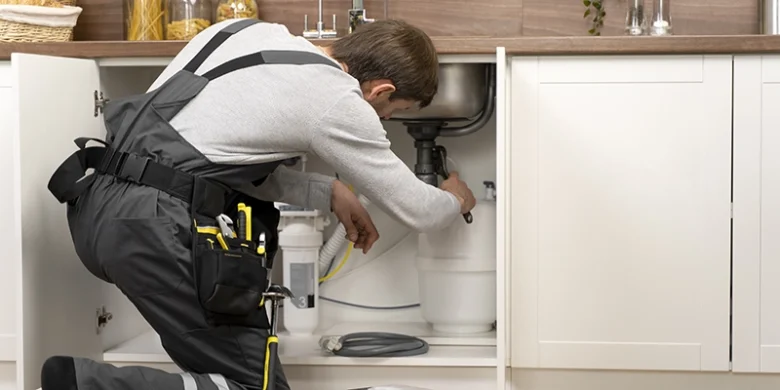When summer arrives, so do long days, backyard barbecues, and an increased need for household water usage. While the season comes with plenty of joys, it also brings unique challenges for your home’s plumbing system. Clogged toilets, sewer backups, and outdoor leaks are just a few plumbing issues that tend to make their debut during the warmer months.
Thankfully, most summer plumbing problems are manageable—if you know what to watch out for and how to address them. Whether you’re a homeowner, a DIY enthusiast, or a property manager, this guide will walk you through the most common summer plumbing issues, how they’re caused, how to prevent them, and even a few DIY fixes for tackling minor problems.
Common Summer Plumbing Issues
1. Clogged Toilets:
With kids at home on summer break and frequent gatherings, you’ll likely notice an uptick in toilet use. Overuse (or flushing items like wipes or excess toilet paper) can quickly lead to clogs.
2. Sewer Line Backups:
Summer rains, coupled with higher water table levels, can overwhelm sewer systems and cause messy backups. Tree roots also become a major culprit, sneaking into sewer lines to get close to the water supply.
3. Outdoor Water Leaks:
From poolside fun to garden hose usage, summer puts a strain on outdoor faucets, sprinkler systems, and hose bibs. Cracks or leaks in these components can waste water and drive up your monthly bill.
4. Garbage Disposal Overload:
Summer cookouts often mean leftover corn husks, watermelon rinds, and greasy barbecue scraps. Tossing these into your garbage disposal can lead to clogs or damage, leaving you with an inconvenient kitchen cleanup.
Causes of These Issues
Understanding what causes these plumbing issues can help you stop them in their tracks or avoid them entirely.
Increased Water Usage
With the household seeing more action during summer break, water usage naturally spikes. Toilets get flushed more often, faucets run longer, and outdoor water is used for everything from slip-and-slides to watering the lawn—all of which strain your plumbing system.
Tree Root Intrusion
Trees and plants grow more aggressively in the summer months, their roots searching for moisture underground. Sewer lines can become a target, leading to cracks, blockages, or even complete system failure.
Improper Item Disposal
Summer festivities often mean tossing items into sinks or toilets that shouldn’t go there—like paper towels, grease, or even small debris from yardwork. This kind of misuse is a leading cause of clogs.
Preventative Measures
Preventing plumbing issues is much easier—and more affordable—than dealing with costly repairs. Here are some proactive tips to keep your plumbing in check all summer long.
For Clogged Toilets
- Educate family members and guests on what can and cannot be flushed. Stick to the three P’s: pee, poop, and (toilet) paper!
- Consider placing small trash bins in bathrooms to discourage improper flushing of items like wipes or tissues.
To Avoid Sewer Line Backups
- Schedule a plumbing inspection to assess your sewer line condition before the season kicks off.
- Remove large trees or plants near your sewer lines, or install root barriers to discourage intrusion.
For Outdoor Leaks
- Inspect outdoor faucets, hoses, and sprinkler systems for signs of wear or damage. Replace any washers or fix small drips as soon as you spot them.
- Invest in durable, weather-resistant hoses and consider using hose timers to regulate usage.
For Garbage Disposal Care
- Avoid disposing of hard items (like bones or fruit pits) or fibrous materials (like corn husks). These can damage or jam your disposal.
- Run your disposal with plenty of water to help prevent buildups.
DIY Fixes for Summer Plumbing Issues
Some plumbing problems don’t require a call to the pros—you can tackle them yourself! Here are step-by-step tips for resolving minor issues.
Clearing a Clogged Toilet
- Grab a plunger that creates a good seal around the toilet drain.
- Plunge gently at first to avoid splashing, then increase force if needed.
- Repeat a few times. If the clog persists, consider using a plumbing snake to break it up.
Fixing a Dripping Faucet
- Turn off the water supply to the faucet.
- Gently remove the faucet handle, using a wrench if necessary.
- Replace the washer or cartridge (these are usually the source of drips).
- Reassemble the faucet and test for leaks.
Addressing Minor Outdoor Leaks
- Check for any cracks or worn-out washers in hose connectors or faucets.
- Use plumber’s tape to seal minor leaks or replace damaged components.
- For sprinklers, adjust or replace nozzles that aren’t spraying properly.
When to Call a Professional
While DIY solutions are great for smaller issues, certain plumbing problems are best handled by an expert.
- Sewer Line Backups: If sewage starts backing up into your home, this is an emergency that needs immediate professional attention.
- Persistent Clogs: A clog that doesn’t resolve after DIY plunging or snaking could indicate a deeper issue in your pipes.
- Major Outdoor Leaks: If you notice pooling water in your yard or a dramatic rise in your water bill, it could signify a serious leak underground.
Don’t wait for problems to escalate—professional plumbers have the tools, expertise, and experience to resolve these big-ticket issues efficiently and safely.
Keep Your Plumbing System in Shape All Summer
Summer is a time for fun, not frustration over plumbing disasters. By staying vigilant, understanding the causes of common issues, and addressing them proactively, you can keep your home’s plumbing system running smoothly all season long.
Have a personal tip for tackling summer plumbing problems? Share it in the comments below! And if dealing with a stubborn plumbing issue is proving to be too much of a hassle, don’t hesitate to reach out to a trusted professional plumber for help.
Don’t wait—schedule a routine plumbing inspection today to ensure your home is ready for the heat and heavy water usage of summer!




